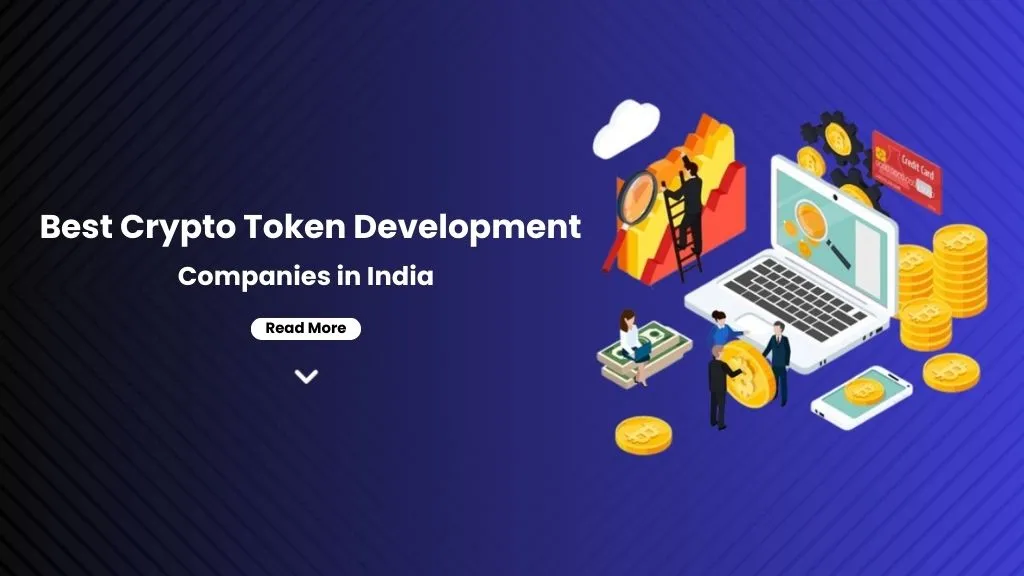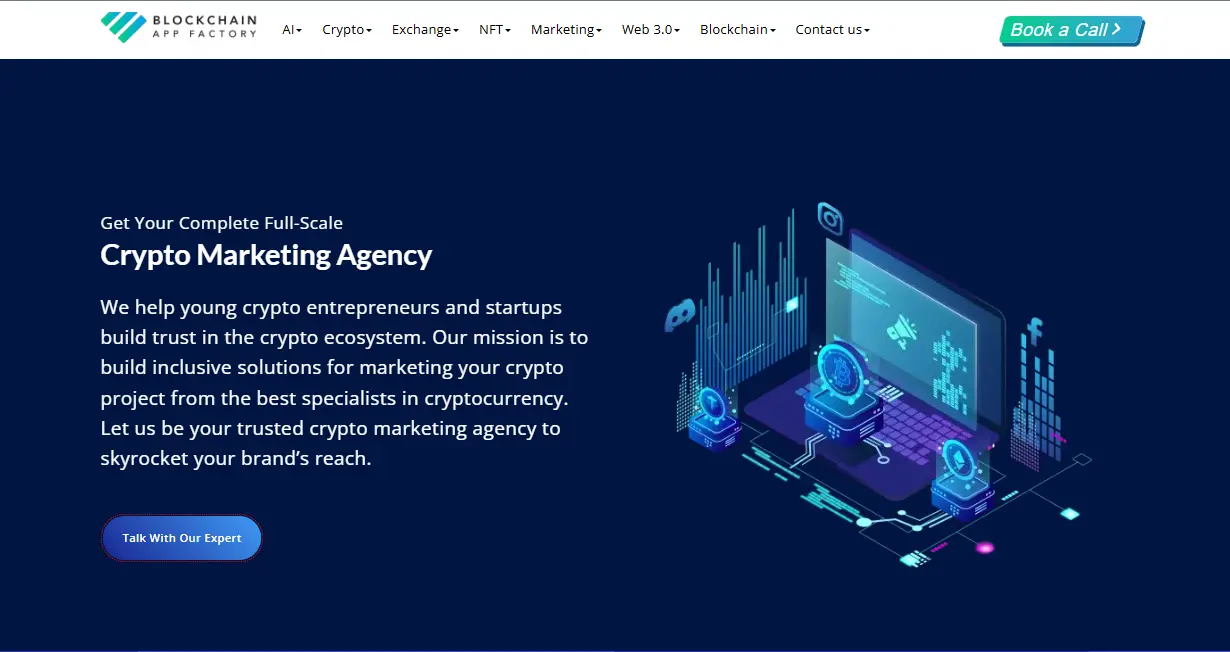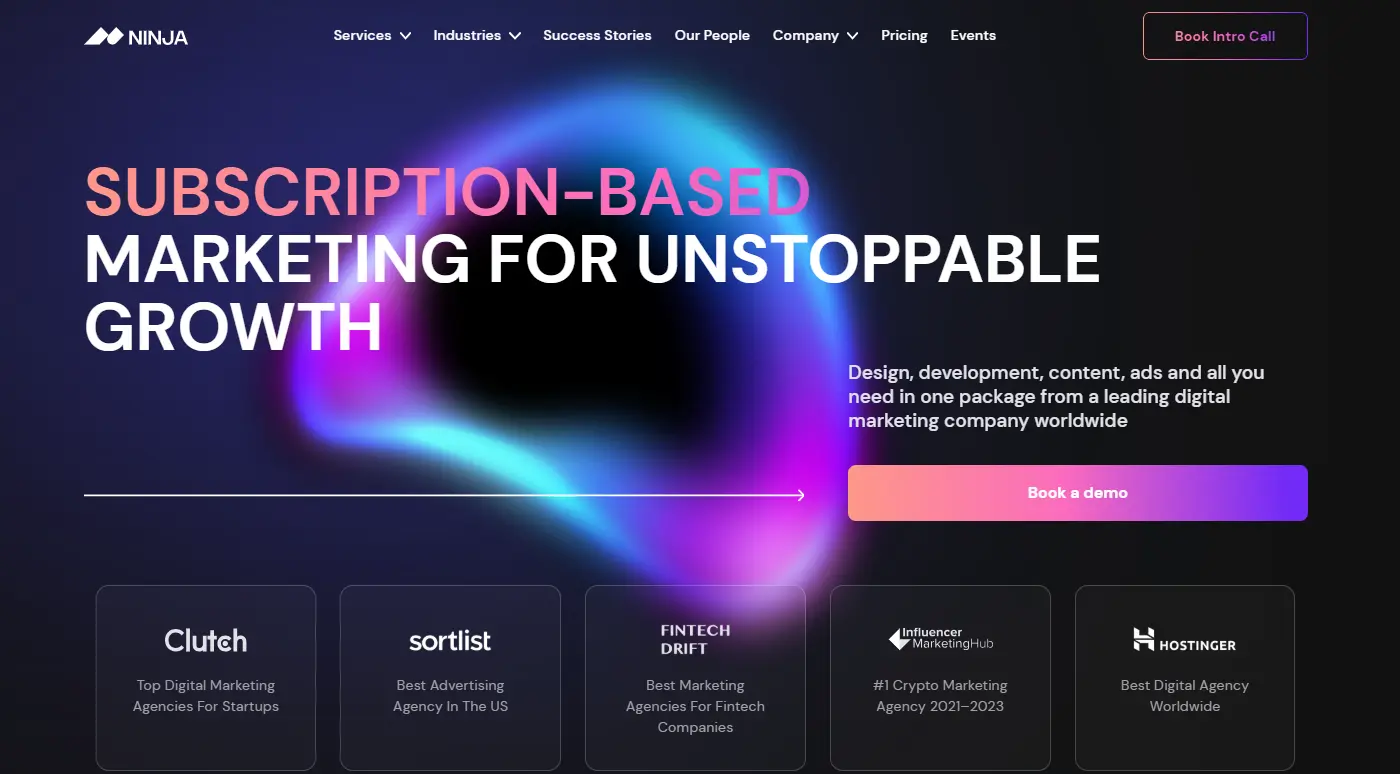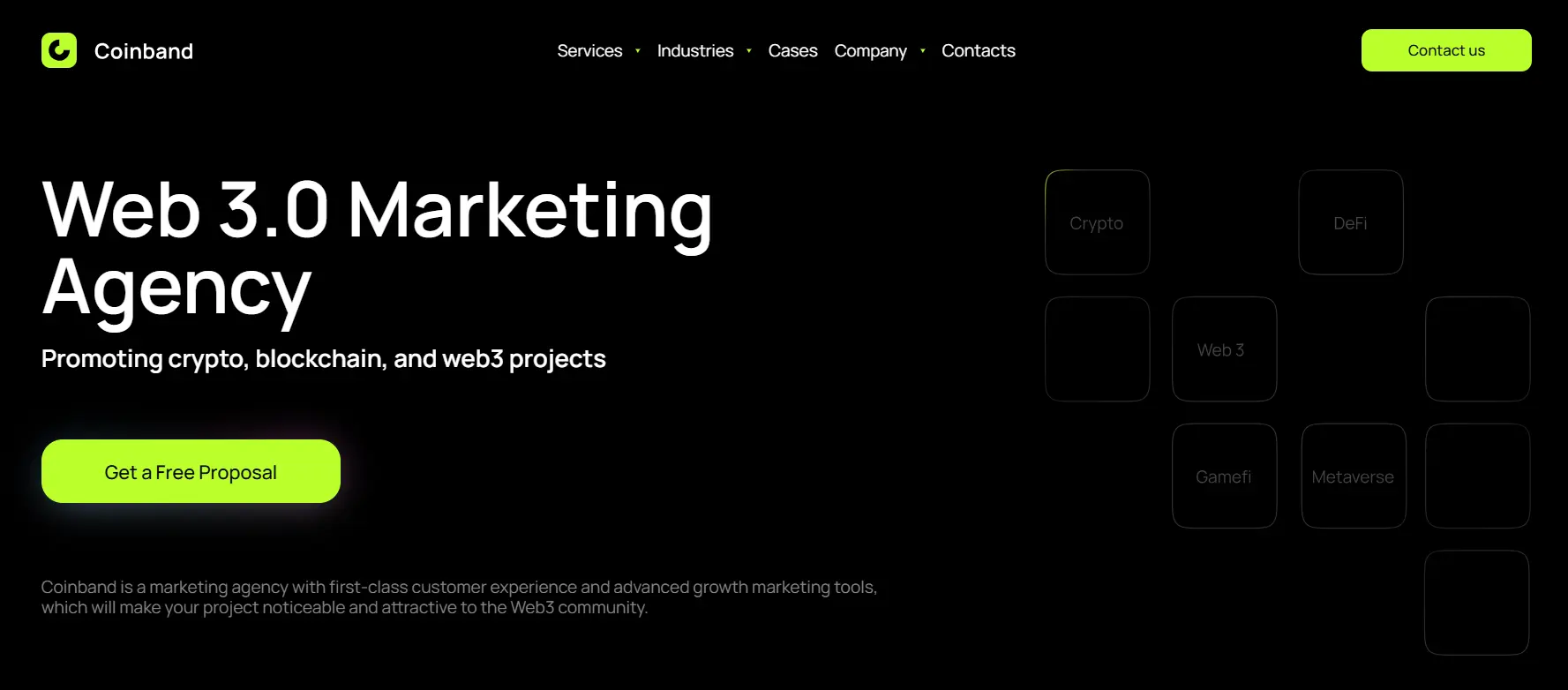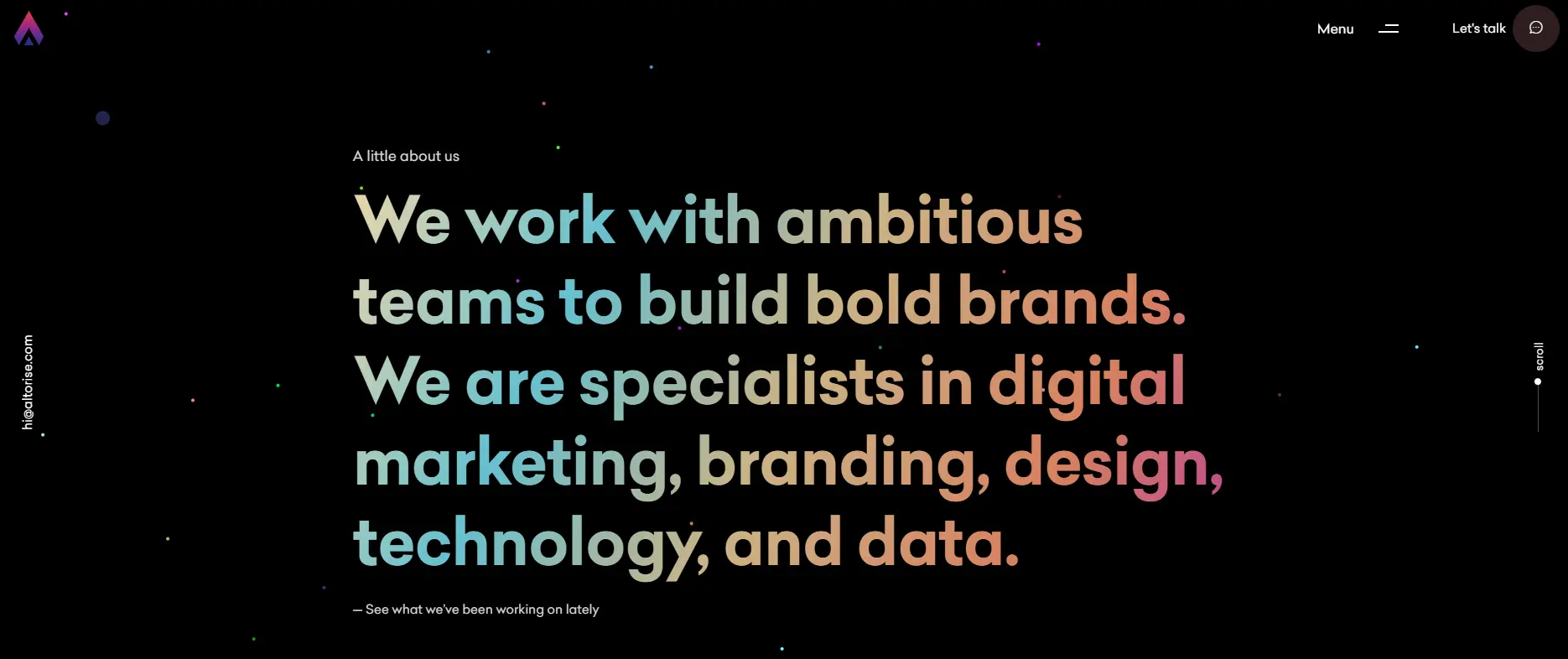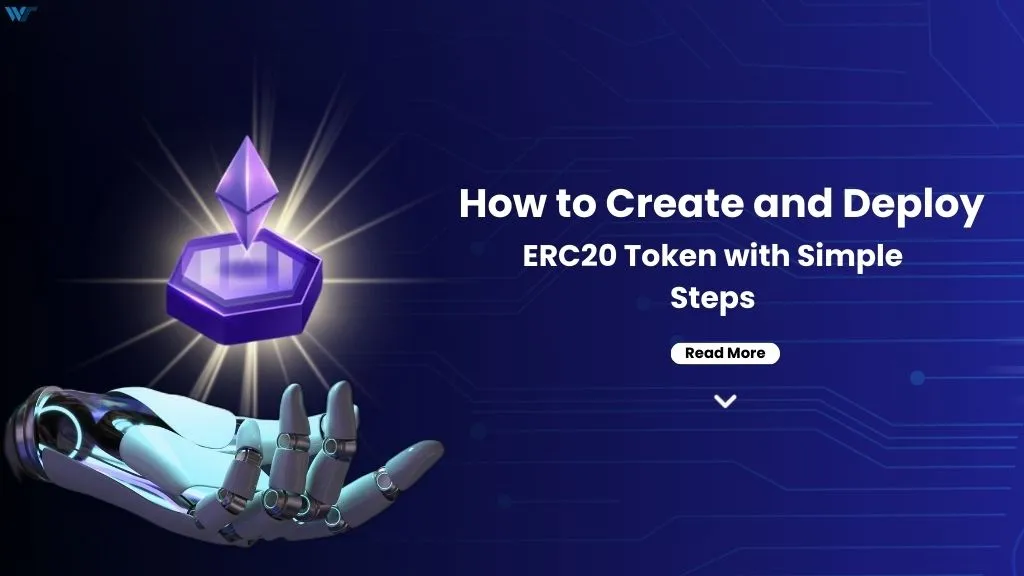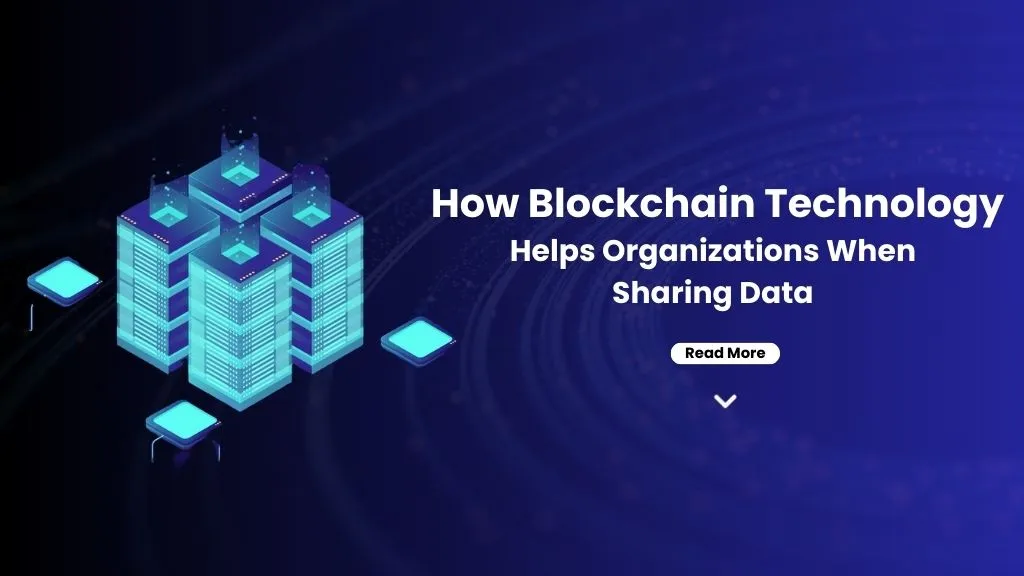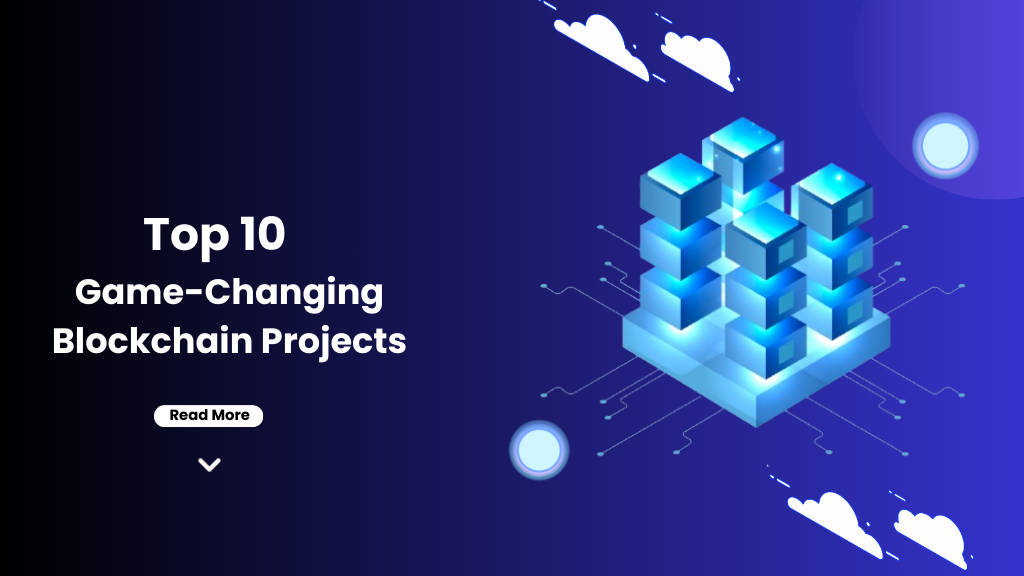Over the last decade, the cryptocurrency and blockchain industries have grown at an exponential rate. India emerging as a leading engine for innovation and development in this field. With an increasing number of blockchain firms, improvements in decentralized finance (DeFi), and the popularity of digital assets. India is quickly establishing itself as a vital player in the global cryptocurrency ecosystem.
Token development is at the heart of the crypto sector, enabling the production of cryptocurrencies, utility tokens, security tokens, and NFTs. These tokens form the foundation of blockchain ecosystems, providing a variety of functions such as payments, governance, and ownership transfer. As the demand for blockchain solutions grows, token development has become an essential component for businesses seeking to harness decentralized technologies.
Crypto token development companies play an important role in shaping the future of blockchain-based businesses. They offer critical services, including token creation, smart contract development, and tokenomics design. These organizations assist businesses in launching new digital assets and integrating them into the larger cryptocurrency ecosystem, ensuring their success in a competitive and dynamic market. As a result, selecting the right crypto token development company is crucial for anyone looking to build and launch their own token successfully.
Why India is a Hub for Crypto Token Development?
India’s thriving tech environment has made it a desirable location for blockchain and cryptocurrency development. India has seen a surge in technological innovation, with cities such as Bangalore, Hyderabad, and Pune emerging as significant hubs for blockchain and cryptocurrency firms. The country has a large number of developers and IT experts who are skilled in cutting-edge technologies such as blockchain, smart contracts, and decentralized applications (dApps). This makes India an ideal place to develop and deploy blockchain-based technologies.
India boasts a large and growing community of blockchain engineers with expertise in platforms such as Ethereum, Binance Smart Chain, Solana, and others. The country’s education system, combined with specialized blockchain training programs and certifications, has produced a skilled workforce capable of creating resilient, scalable, and secure crypto tokens. Many blockchain firms, crypto token development companies, and crypto exchanges have found fertile ground to thrive in India due to the availability of venture capital, networking opportunities, and access to the global market. Furthermore, the government’s emphasis on digital transformation and technological innovation continues to enhance India’s appeal as a blockchain hub.
India is rapidly becoming the go-to destination for crypto token development companies, offering a highly skilled workforce, technological innovation, and a supportive ecosystem for blockchain projects. With so many options available, selecting the best crypto token development company in India is vital to the success of your blockchain project.
Criteria for Selecting the Best Crypto Token Development Companies
Expertise and Experience:
When selecting a crypto token development company, look for organizations that have a successful track record in token development and a deep understanding of blockchain technology. A company with experience in generating various types of tokens (such as utility tokens, security tokens, and NFTs) will be better equipped to provide a wide range of solutions. It’s also crucial to consider their experience with different blockchain platforms and consensus processes, as these factors impact the token’s scalability, security, and performance. Companies listed among the 10 Best Crypto Token Development Companies in India typically showcase diverse expertise across multiple blockchain ecosystems, ensuring that your token will be adaptable and resilient in the rapidly evolving market.
Reputation and Client Portfolio:
A strong reputation and a solid client portfolio are essential when choosing the best crypto token development companies. Client testimonials, case studies, and reviews offer valuable insight into the company’s reliability and quality of work. A proven track record of successful token launches and satisfied clients shows that the company is capable of delivering high-quality crypto token development solutions. Companies that have worked on successful token launches, and have experience across various industries, can be trusted to handle the intricacies of your project. These firms are often featured in lists of the 10 Best Crypto Token Development Companies in India, making them reliable options for your token development needs.
Services Offered:
When evaluating crypto token development companies, consider the scope and depth of their services. Beyond just token creation, look for firms that offer a comprehensive solution, including smart contract development, tokenomics design, security audits, and post-launch support. The best crypto token development companies will not only create your token but will provide full-spectrum support to ensure the token is successfully launched, secure, and scalable for future growth.
Transparency, Security, and Scalability:
Security is paramount when dealing with crypto token development, especially in relation to smart contracts and decentralized systems. Choose a company that adheres to industry best practices for blockchain security, conducts regular audits, and ensures that your token is free from vulnerabilities. Furthermore, scalability is a key factor in the long-term success of your token. As your project grows and your user base increases, your token must be able to handle higher transaction volumes without compromising performance. Crypto token development companies with experience in creating scalable solutions for high-traffic environments will help you develop a token that meets both current and future demands.
Customization Based on Token Requirements:
Depending on your project’s specific needs, custom token development may be necessary. Whether you’re create an erc20 token, an ERC-721 NFT, or a token based on another blockchain platform, the development company should be able to offer tailored solutions that align with your functional and technical requirements. The best crypto token development companies will take a customized approach, designing a token that fits your unique business model and growth plans.
10 Best Crypto Token Development Companies in India
Each of the companies listed here offers a unique set of capabilities and can help bring your vision to life with high-quality, secure, and scalable token solutions. Here are the top crypto token development companies in India that are known for their proficiency in blockchain technologies, token creation, and custom tokenomics design:
Wisewaytec
Wisewaytec is a leading crypto token development company with a strong focus on creating secure, scalable, and custom crypto tokens for various industries. Known for its comprehensive approach, Wisewaytec offers end-to-end token development services, ensuring that every aspect of the token lifecycle, from design to deployment, is handled with precision and expertise. They are considered one of the best crypto token development companies in India, delivering high-quality, reliable solutions.
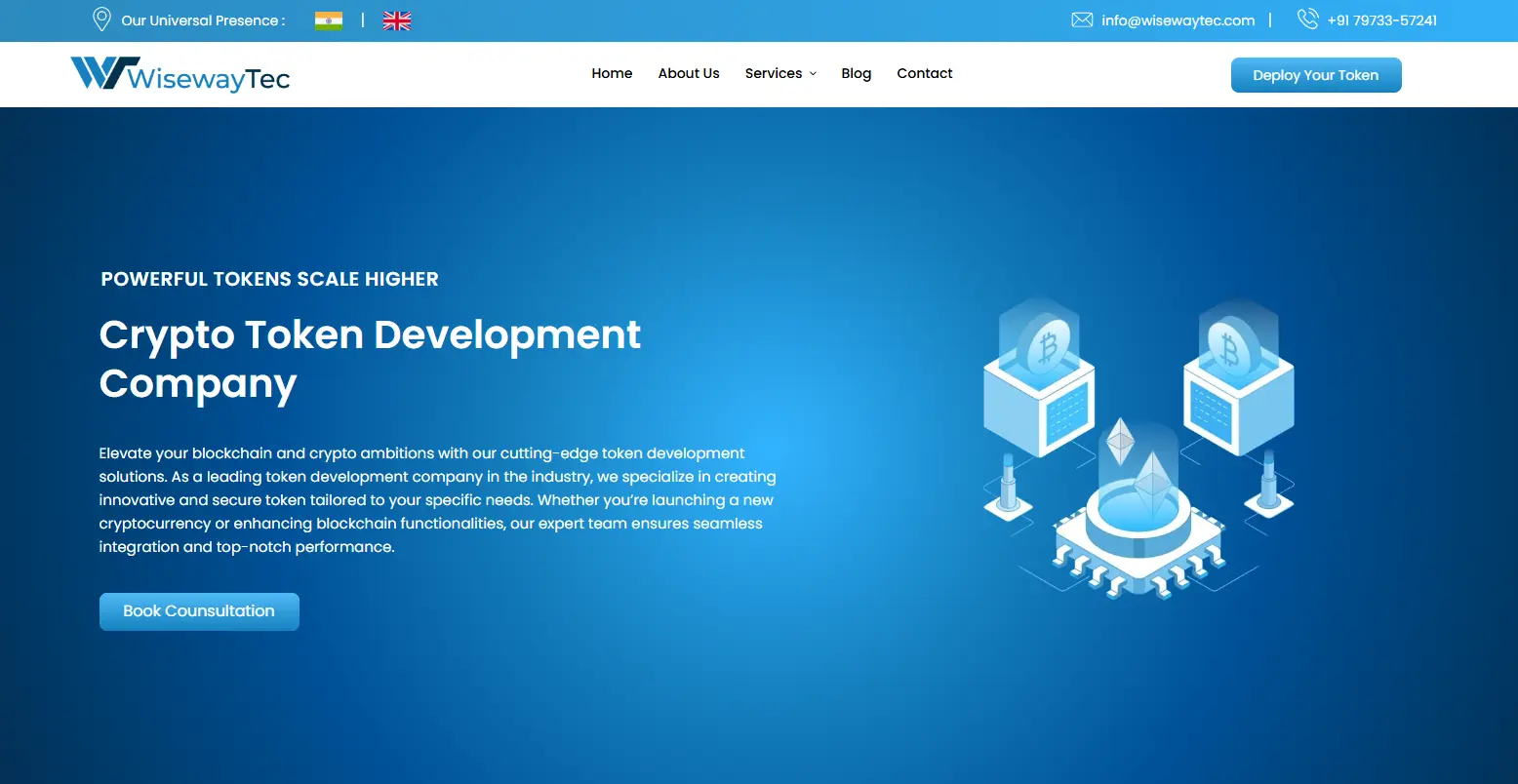
Key Services-
- Custom token development (ERC-20, ERC-721, etc.)
- Blockchain consulting and solutions
- DeFi token creation
- Smart contract development and auditing
- ICO and token launch solutions
SoluLab
SoluLab is a renowned crypto token development company with a strong reputation in the crypto token development space. With years of experience in blockchain and a track record of delivering successful token projects, SoluLab ensures that each crypto token they create is secure, scalable, and aligns with your business goals. Their expertise places them among the best crypto token development companies in India. They are known for building secure and highly functional tokens across different blockchain platforms.
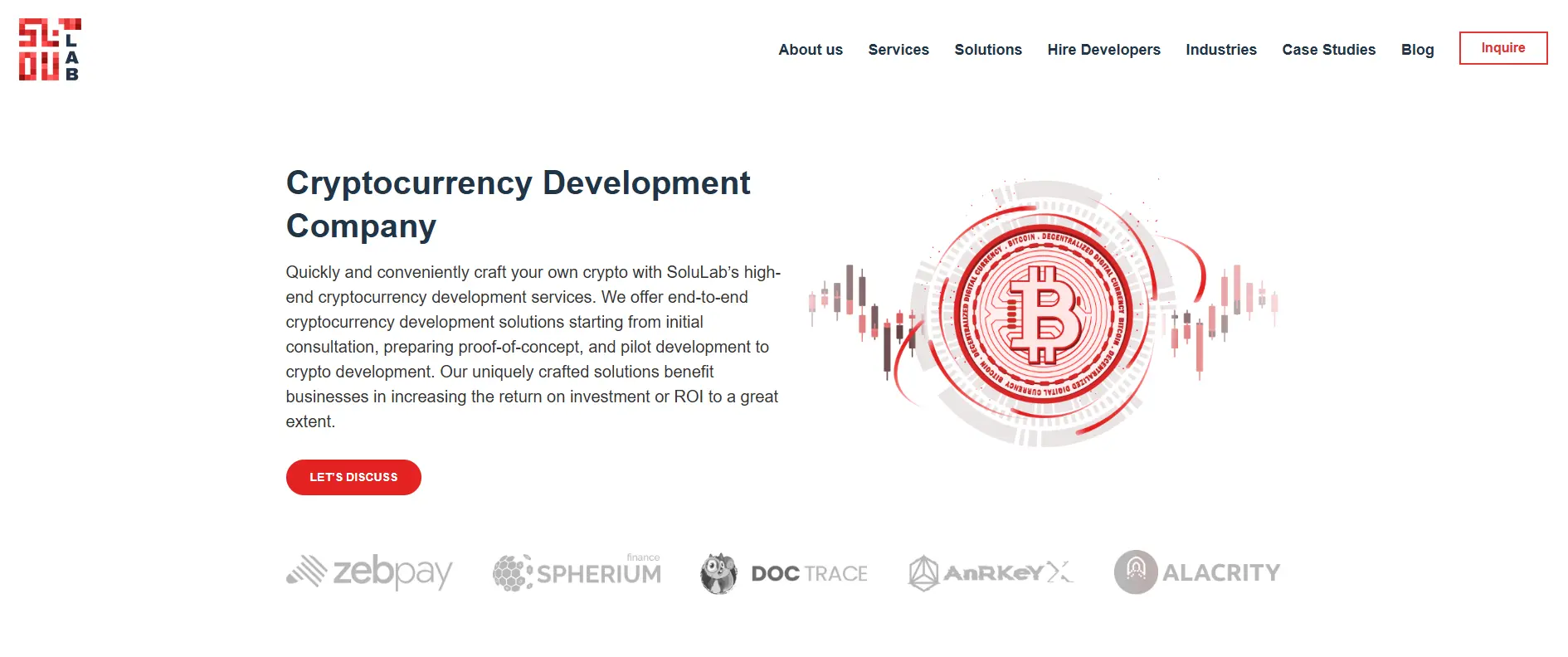
Key Services-
- ERC-20 & ERC-721 token development
- DeFi token creation
- Security token and utility token solutions
- Tokenomics analysis and optimization
Antier Solutions
Antier Solutions is a prominent blockchain development firm offering crypto token creation services with a focus on innovation and security. They have a proven record of building high-performance tokens that meet the needs of DeFi, ICOs, and NFT platforms, with a keen eye on regulatory compliance and security. They are highly regarded among the best crypto token development companies for their expertise in security and tokenomics.
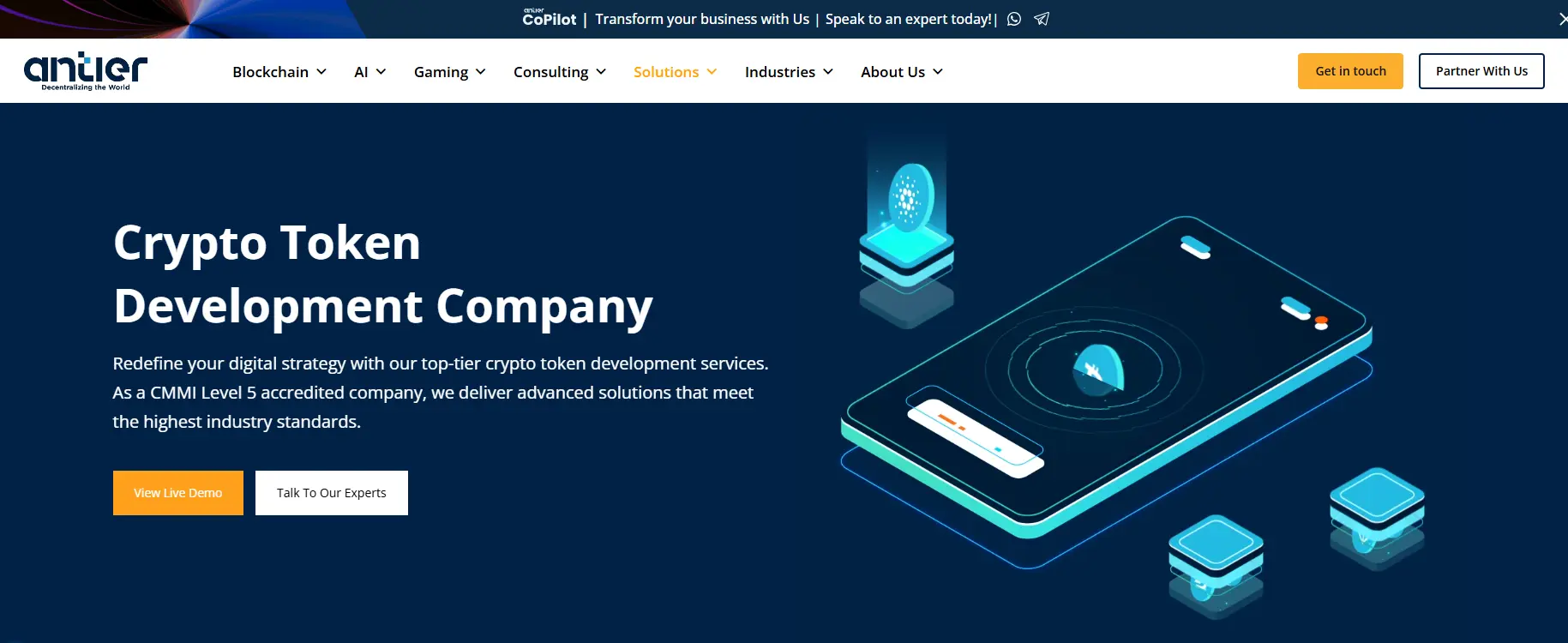
Key Services-
- Custom token development (ICO, STO, NFTs)
- Smart contract design and auditing
- Tokenomics strategy and consultation
- Blockchain integration services
Blockchain App Factory
Blockchain App Factory is a leading provider of blockchain solutions, including crypto token development, DeFi solutions, and NFT-based token creation. They provide end-to-end services for token creation, including market analysis, tokenomics, and full post-launch support, making them a go-to for startups and enterprises alike. They are recognized as one of the best token development companies for their all-inclusive approach.
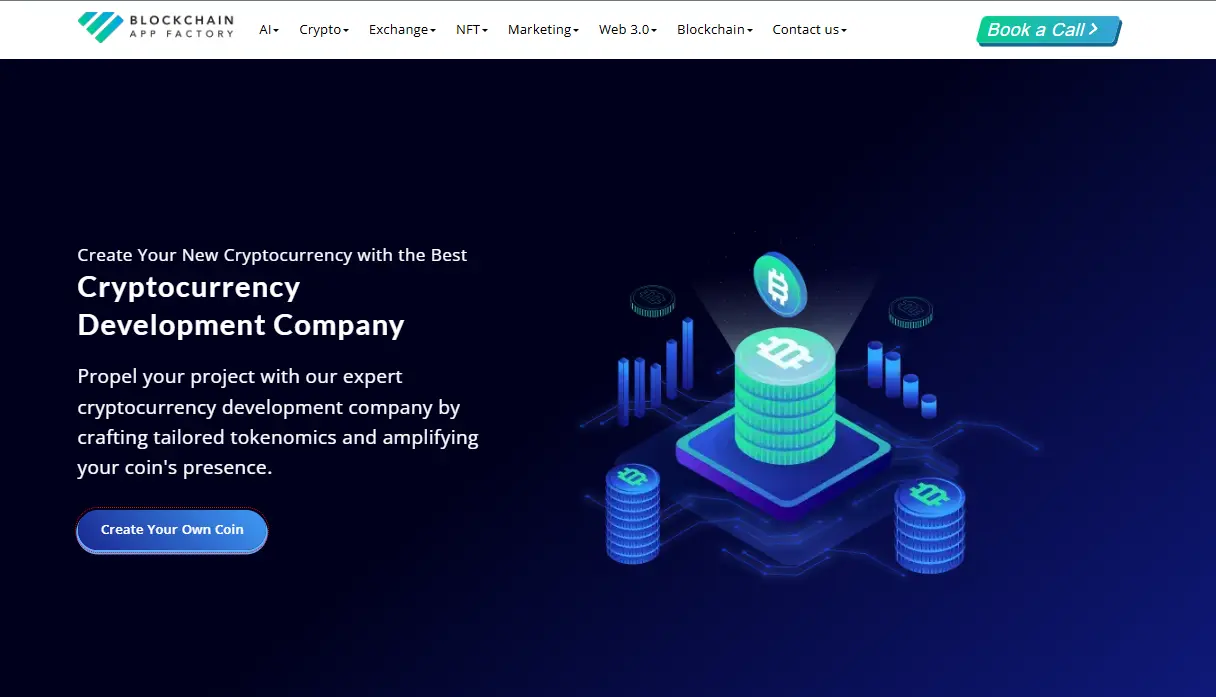
Key Services-
- Crypto token development (ERC-20, ERC-721)
- Blockchain Technology in dApp Development
- ICO/STO/IEO token launch services
- Blockchain consulting and tokenomics analysis
Maticz Technologies
Maticz Technologies is an expert in blockchain technology and specializes in custom crypto token development. With a wide array of blockchain services and a proven track record in the DeFi and NFT space, Maticz offers highly adaptable token development services that cater to both emerging and established businesses. They provide token creation solutions for businesses across various sectors, including gaming, finance, and NFTs.

Key Services-
- Token development on Ethereum, Binance Smart Chain, Solana, etc.
- NFT token creation and marketplace integration
- DeFi token solutions
- ICO and token launch services
HashCash Consultants
HashCash Consultants is a global blockchain consulting firm that offers comprehensive token development services. With a reputation for innovation and excellence, HashCash Consultants offers advanced blockchain solutions and has extensive experience in launching secure tokens for international markets. They rank among the best crypto token development companies for their global reach and secure solutions. They specialize in building secure, scalable tokens that are aligned with global standards and regulations.
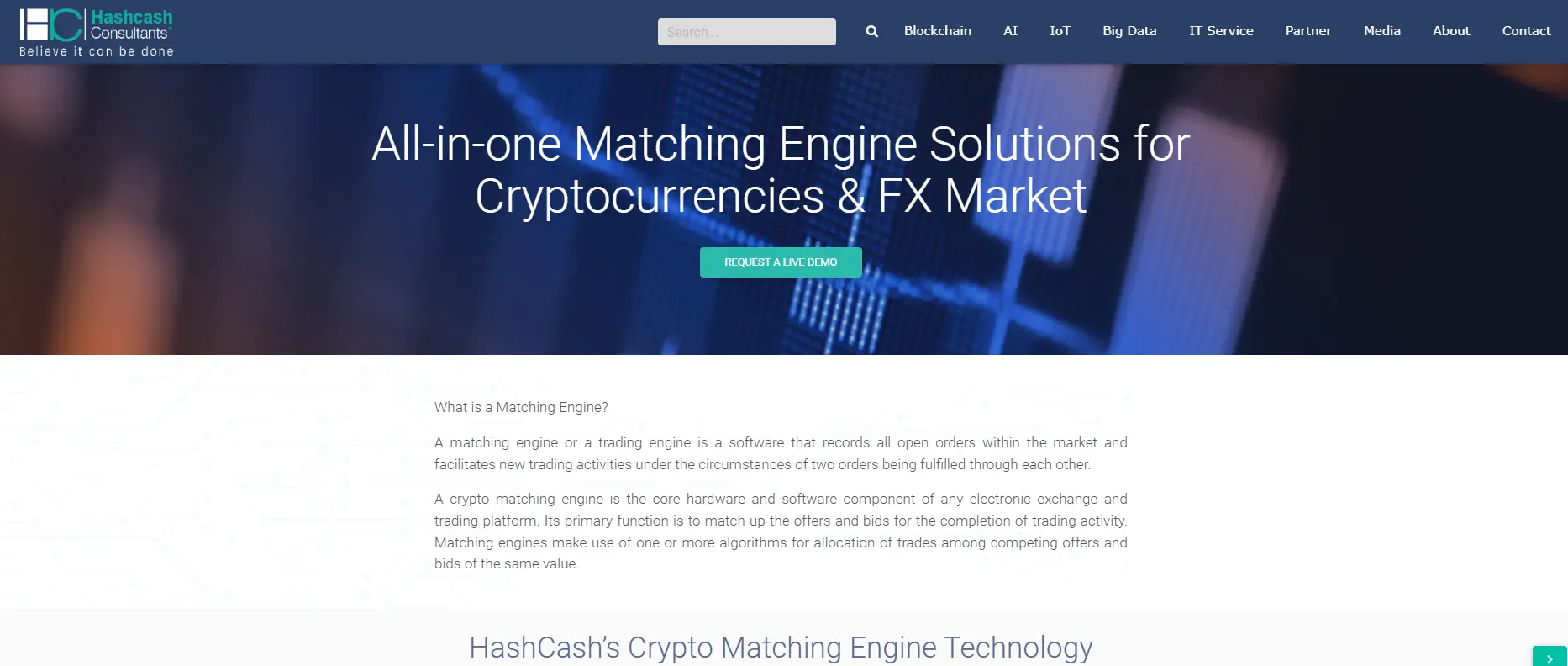
Key Services-
- Custom token development (ERC-20, ERC-721, ERC-1155)
- STO token creation and management
- Tokenomics consultation
- Blockchain integration and enterprise solutions
Nadcab Labs Technology
Nadcab Labs is a renowned blockchain development company providing services in blockchain integration. Nadcab Labs Technology is known for its custom token development services tailored to the needs of DeFi, NFTs, and tokenized assets. Their expertise in developing robust, scalable solutions places them among the best crypto development companies in India.
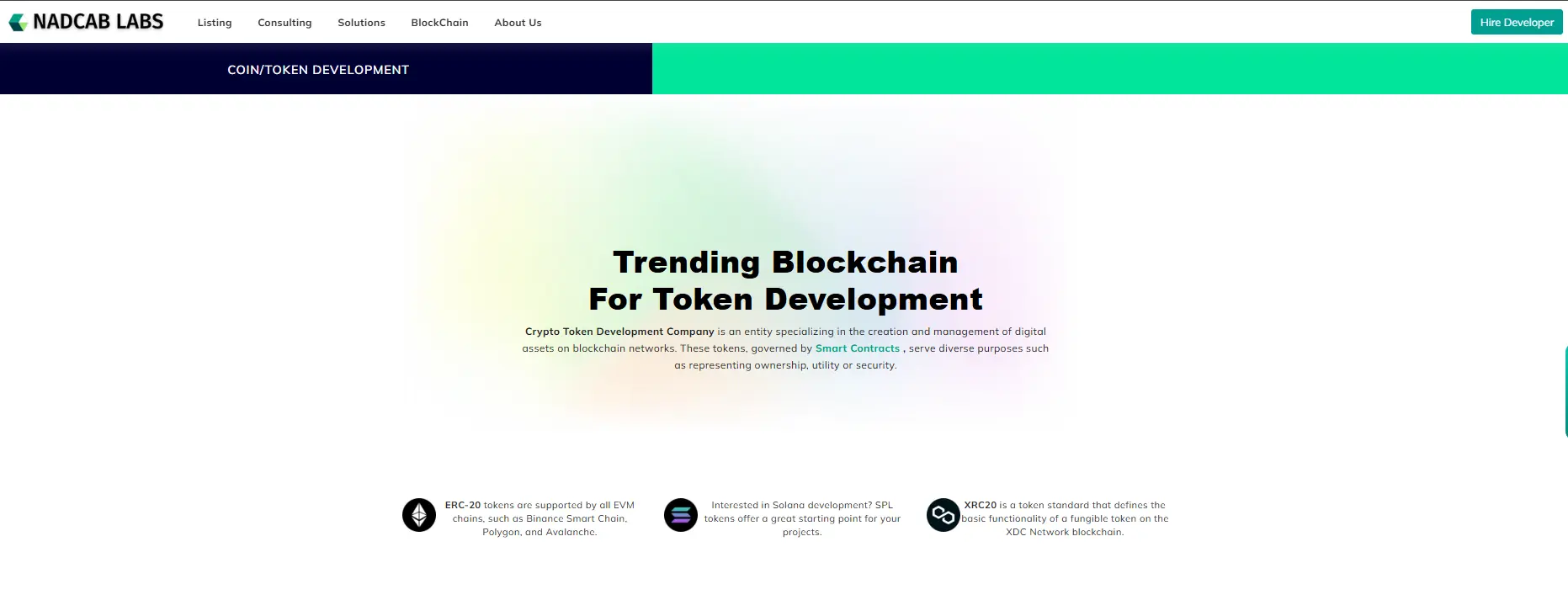
Key Services-
- ERC-20, ERC-721, and cross-chain token development
- DeFi and NFT token development
- Smart contract development and audits
- Blockchain-based product development
Developcoins
Developcoins is a leading blockchain development company specializing in crypto token creation, ICO solutions, and tokenomics. They are known for their expertise in custom token development for both startups and enterprises. Known for their customer-centric approach and technical expertise, Developcoins helps businesses design token models that align with their objectives while ensuring security and scalability. They rank among the best crypto token development companies for their reliable, secure solutions.
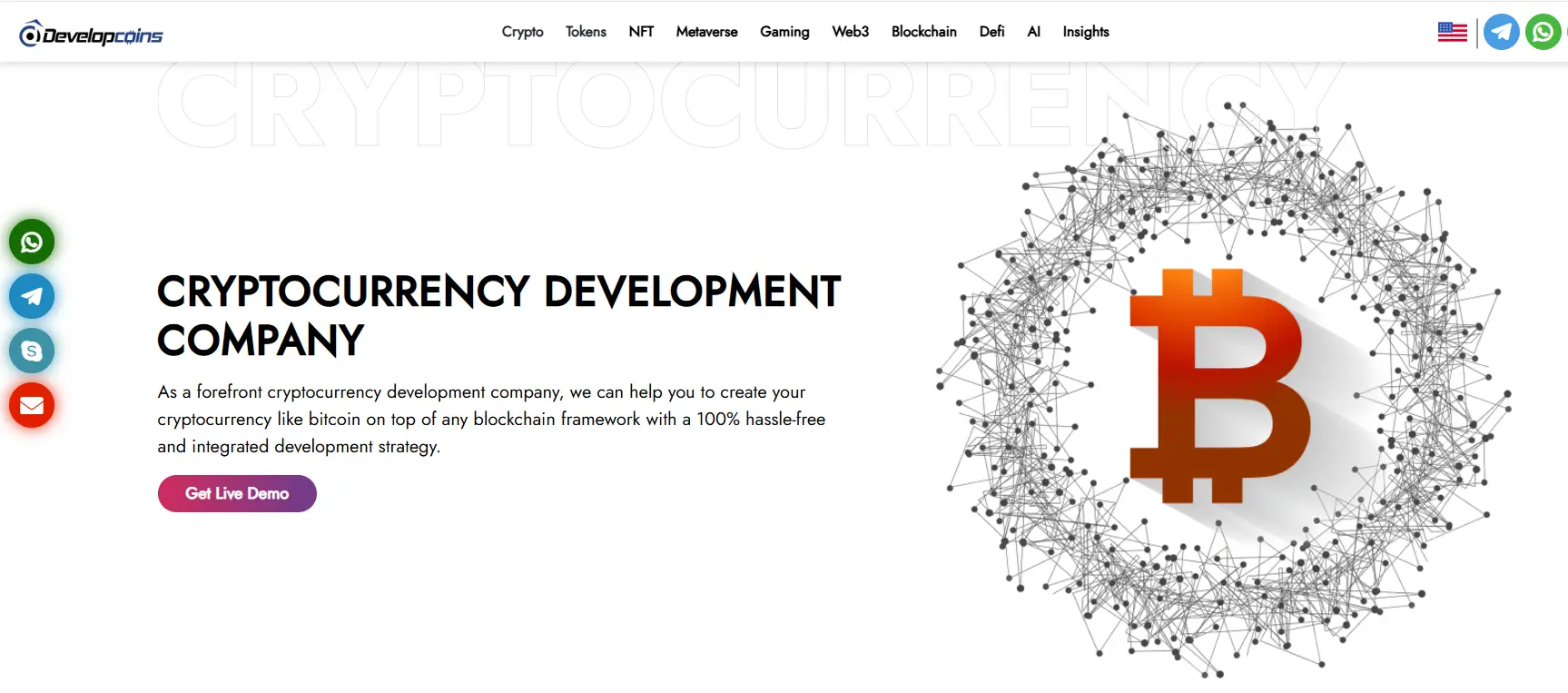
Key Services-
- ERC-20, ERC-721, and cross-chain token creation
- ICO/IEO/STO services
- Tokenomics design and consultation
- Blockchain development and integration
Turnkey Town
Turnkey Town is a prominent blockchain and crypto token development company with a strong focus on custom token development, DeFi, and NFT-based solutions. They provide innovative solutions for DeFi tokens, NFTs, and custom token creation, with a strong focus on security and scalability, ensuring the success of your token launch.
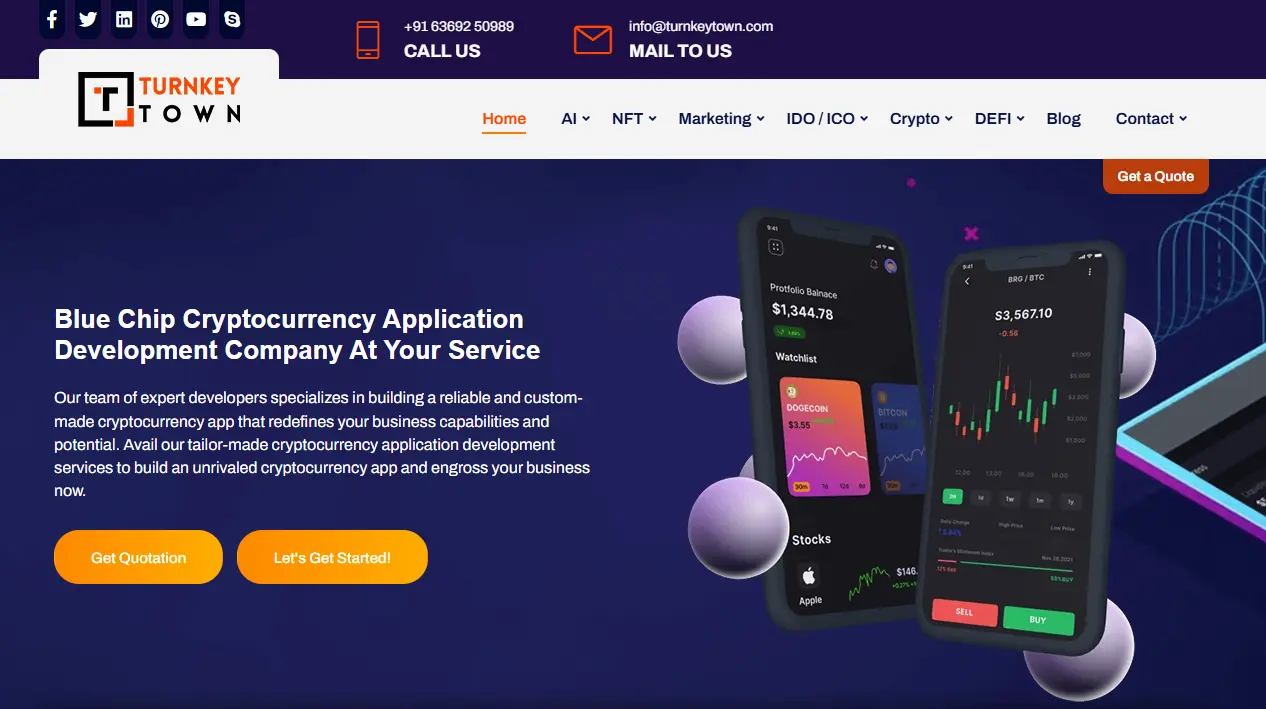
Key Services-
- Token development on Ethereum, Binance Smart Chain, and others
- Smart contract development and audits
- Tokenomics design and consulting
- NFT token development and marketplace solutions
Security Tokenizer
Security Tokenizer is a blockchain and token development company specializing in security token offerings (STOs). They offer end-to-end solutions for token creation, management, and tokenomics design, catering to regulatory-compliant token launches. As experts in security token offerings, they provide highly regulated token development services for businesses looking to issue security tokens, ensuring full compliance with global regulations.
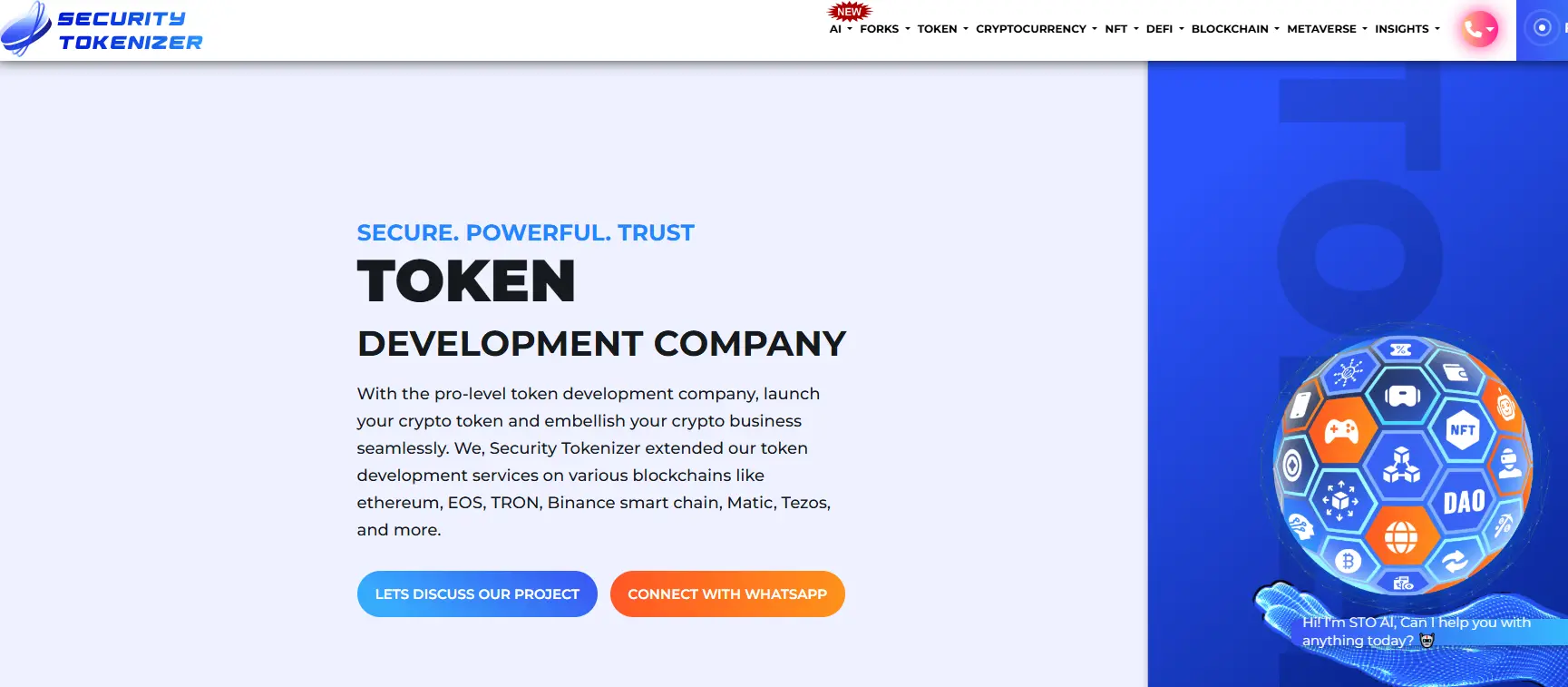
Key Services-
- Security token development
- STO launch and management
- Tokenomics analysis and smart contract design
- Blockchain consulting and development
Final Words
The future of token development in India looks bright, driven by the country’s growing blockchain ecosystem and government policies that encourage innovation and technology adoption. As blockchain technology continues to evolve, the need for bespoke token development will increase, especially with the rise of DeFi, NFTs, and Security Tokens. Choosing the right crypto token development company with a forward-thinking mindset and adaptability to new trends will help your project stay competitive and successful in the long term.
Selecting the best crypto token development company in India is crucial for the success of your blockchain project. The development company you partner with will directly influence your token’s functionality, security, scalability, and overall performance. Expertise in tokenomics, smart contract development, regulatory compliance, and post-launch support are essential considerations. A strong partnership with a capable crypto token development company will ensure the longevity and success of your token in the competitive crypto space.
If you’re ready to bring your crypto token idea to life, we recommend reaching out to one of the reputable companies featured in this list of the 10 best crypto token development companies in India. Whether you’re launching a new token for a DeFi project, generating NFTs, or exploring the world of security tokens, these crypto token companies offer customized solutions to meet your needs.
Wisewaytec Can Help with Custom Crypto Token Development and Blockchain Solutions
At Wisewaytec, we specialize in creating custom crypto tokens for businesses across various sectors. Our team of experienced blockchain developers is well-equipped to design tokens with robust tokenomics, scalable infrastructure, and secure smart contracts. We collaborate closely with you to ensure that your token aligns with your business goals while meeting the highest standards of security and regulatory compliance.
Get in touch with Wisewaytec today for a free consultation. Let’s explore how we can help you bring your crypto token project to life and achieve long-term success in the blockchain ecosystem.

